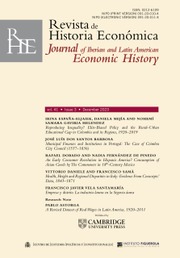Article contents
British Imperialism in a Mercantilist Age, 1492–1849: Conceptual Issues and Empirical Problems
Published online by Cambridge University Press: 28 April 2010
Extract
Writing on the eve of one of the major transformations in the British Empire, Adam Smith more or less repeated the remark made by the Abbé Raynal several years earlier that «the discovery of America, and that of passage to the East Indies by the Cape of Good Hope, are the two greatest and most important events recorded in the history of mankind»l. Both of these great events of the 1490's, Columbus's discovery of the Americas and the sailing to India, a few years later, by Vasco de Gama, had no immediate impact on the British economy, but the opening up of this wider world for colonization and trading would soon have profound impacts on Britain and the other nations of Western Europe. In the same decade Britain, however, did make its first claim to New World territory, when John Cabot landed on Newfoundland in 1497, but it was to be about a century before title was clear and setdement begun. Not the first to establish an empire, the British rose to world-wide dominance over the course of the next three centuries.
- Type
- Articles-Artículos: Part 2. European Economics in the First Epoch of Imperialism and Mercantilism, 1415–1846
- Information
- Revista de Historia Economica - Journal of Iberian and Latin American Economic History , Volume 16 , Issue 1: The costs and benefits of european imperialism from the conquest of Ceuta, 1415, to the treaty of Lusaka, 1974. Twelfth International Economic History Congress. Madrid 1998 , March 1998 , pp. 195 - 231
- Copyright
- Copyright © Instituto Figuerola de Historia y Ciencias Sociales, Universidad Carlos III de Madrid 1998
References
REFERENCES
- 5
- Cited by


